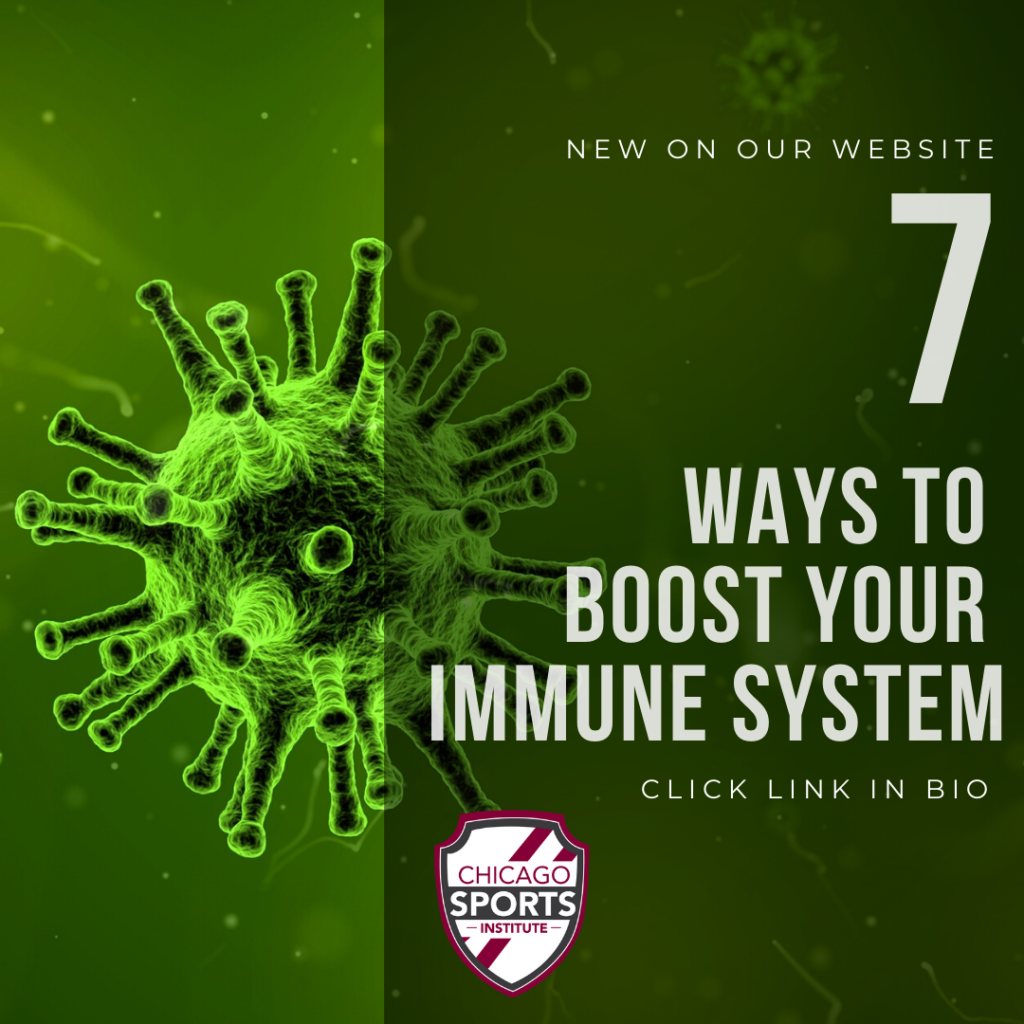
by John Baker
- EXERCISE:
Exercise is one of the best ways to boost your immune system. There have been a large amount of peer-reviewed research that supports this. The main take home point of these studies is consistency. Irregular exercise is not shown to elicit an immune boosting effect. Thankfully, it doesn’t really matter what type of exercise you partake in. You are free to choose whatever method you enjoy, just so long as you do it at least twice a week. Additionally, the research shows that four to five days a week of exercising may be better than just a few. However, if you are not used to exercising, you may want to work your way up. - GUT HEALTH:
Your digestive tract is a very complex and highly dynamic system. It is a first line of defense and plays a key role in immune functioning. Somewhere between 65-75% of your body’s immune cells are actually located in the lining of your gut walls. A well functioning gut can ward off viral or bacterial infection, decrease inflammation, and digest the nutrients necessary to produce anti-bodies and immune cells. To be protected from the largest array of potential issues as possible it is important to have a diverse gut microbiome, or population of healthy gut bacteria. Eating a diverse volume of gut healthy foods that are high in fiber, minimizing processed foods, as well as taking probiotics can achieve this. On the other hand, a poor gut can increase your risk of infection and disease significantly, while at the same time reducing your ability to recover should you get sick. - SLEEP:
When you’re a kid and got sick, your mom probably told you to lie down and sleep. Knowingly or not, she was really on to something. Research shows that when individuals are exposed to a virus, those who sleep more are more likely to not experience symptoms of the virus. Also, for those who do experience symptoms, individuals who spend more time sleeping are shown to recover more quickly. Adults should aim for seven to eight hours per night, teenagers should aim for nine to ten hours per night, and grade school age and below should aim for ten or more hours of sleep per night to maximize its benefits. - NUTRITION:
Nutrition is king. You can’t out train, sleep, or supplement a bad diet. The effects of a bad meal, or a bad day, can be seen almost immediately in regards to your body’s immune response. Conversely, one nutritious meal can turn your body into an immunity powerhouse. To take advantage of your body’s ability to fight infection via nutrition, stick to a whole foods diet centered around nutrient dense foods. Nutrient dense foods consist of foods that are high in vitamins and minerals but low in calories (i.e. kale, spinach, broccoli, carrots, peppers, onions, etc.). These foods will provide your body with an array of the nutrients it needs to function optimally, while also supporting good gut health, doubling down on its benefits. You should try your best to minimize consumption of processed foods and alcohol as these will burden your system while at the same time provide little to no nutritional value. - PROTEIN:
Protein is well known for building and repairing any damaged tissue in the body. A lesser-known quality of protein is that it is actually vital to help fight off viral and bacterial infection. This is because one of proteins key roles is to form enzymes, antibodies and other immune related cells. If you do not consume adequate amounts of protein your body will not be able to support the immune system, and your risk of contracting something drastically increases. Additionally, if you have contracted something your body will be expending your current immune related mechanisms, and thus there is an even greater need for protein to replenish and keep up with your diminishing stock. - WATER:
Water is fairly simple, but yet lots of people fail to take advantage of all its benefits. Drinking inadequate amounts of water can lower your body’s ability to function optimally and increase your chance of infection. When you under consume water your body does not have enough resources to meet basic functioning. When you are in the presence of a foreign invader your body is already struggling and your risk of contracting something skyrockets compared to someone who is hydrated. Additionally, when you are sick, your body is using a much larger amount of water than normal to help fight off the sickness. It is best to aim for a gallon of water a day, while adding in more according to activity and sickness. - SUPPLEMENTS:
- Vitamin C: Helps kill pathogens, increases immune cells, acts as an antioxidant, and helps clear poor functioning cells. Water-soluble so you do not have to fear the possibility of taking too much.
- Zinc: Present in over 200 bodily functions, boost antioxidant capabilities of the body, increases integrity of skin and mucous membranes allowing for greater defense against disease, boost immune cells, helps prevent viruses from propagating inside the body. Best effects are shown at 90mg per day.
- Vitamin D: Boosts number of immune cells, lowers inflammation, decreases damage to healthy tissues in accordance to infection.
